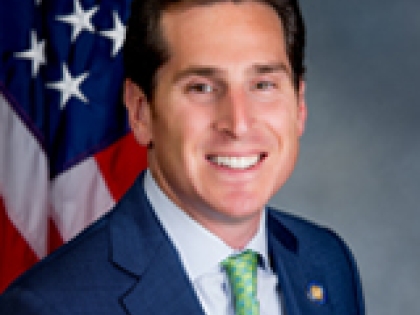
MTA commuters, in virtual hearing, say thumbs-down on proposed 4% fare hike
MTA commuters invited to weigh in on the agency’s latest fare hike proposal on Tuesday evening had a largely unified message: Now is not the time.
During a virtual public hearing aimed at gathering input on a range of proposals to raise Metropolitan Transportation Authority fare and toll revenue by 4%, several speakers instead pleaded with transit leaders to reconsider the plan. It comes as both the MTA and its riders are reeling from the economic impact of the coronavirus.
"For the purposes of attracting ridership, it’s simply the wrong thing to do," said Sen. Todd Kaminsky (D-Long Beach), the first speaker at the first of eight virtual hearings scheduled this month.
Kaminsky noted that, with the LIRR still carrying only about a quarter of its pre-pandemic ridership, the MTA should be looking for ways to encourage customers to return to the system. "A fare increase at this time would do the exact opposite," he said.
MTA chairman Patrick Foye noted that the proposed fare and toll increase is keeping with a schedule adopted by the State Legislature a decade ago to adjust rates every other year. He said the agency’s goal is to "minimize the impact on New Yorkers in this difficult time."
"We fully know that any increase will hurt New Yorkers," Foye said. "It’s clear that this is one of the most uncertain and challenging times that any of us have ever faced."
Rather than raising all rates, the MTA is considering several options, including doing away with time-based, unlimited ride MetroCards, and instituting a "flat fare" for all LIRR trips made between Long Island and those in New York City.
"It's totally unacceptable that the fares are going to be going up," Brooklyn commuter Nicolas Seunarine said in his Zoom testimony. He said the MTA's current rates are "very reasonable" and that raising them during the pandemic would be "atrocious."
Lisa Daglian, executive director for the MTA’s Permanent Citizens Advisory Committee, which includes the LIRR Commuter Council, said it was "hard to discuss the particulars" of the various proposals when the MTA’s financial future is so uncertain.
The agency is projecting a $16 billion deficit through 2024, stemming from pandemic-related ridership and revenue losses. Without financial help from the federal government, the MTA has said it may have to resort to deep service cuts and mass layoffs.
"Is it worth paying 4% more for 40% less?" said Daglian, referencing the potential for subway and bus service to be slashed nearly in half. "We know that in any other cycle, it would be time to consider fare increases. But this year, it’s different … Let’s reconvene in the spring. Hopefully, the future will look brighter."